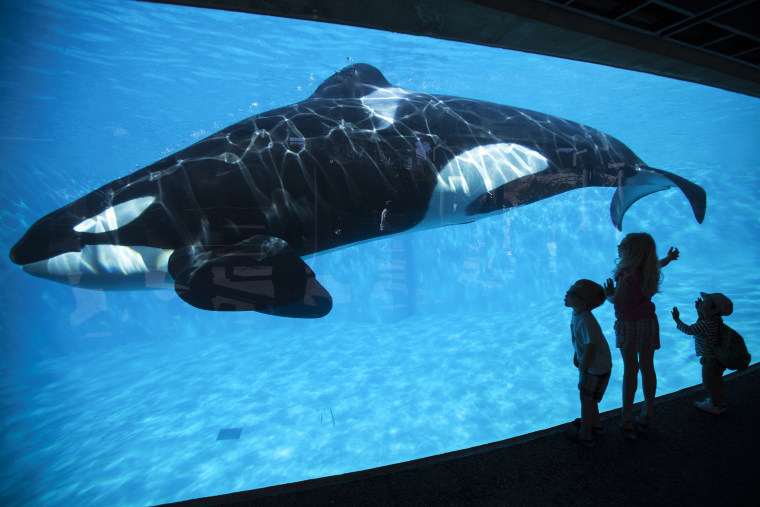SeaWorld announced Thursday it will end its killer whale breeding programs and take what it called a "new direction" amid changing social attitudes.
The company, which has 24 orcas at three parks in California, Texas and Florida, said the current animals in its care would be SeaWorld's last generation.
"SeaWorld has been listening and we're changing," the company said in a statement. "Society is changing and we're changing with it. SeaWorld is finding new ways to continue to deliver on our purpose to inspire all our guests to take action to protect wild animals and wild places."
RELATED: SeaWorld San Diego ending orca show
Joel Manby, president and CEO of SeaWorld, wrote in an op-ed article in the Los Angeles Times that its existing whales would remain in captivity because setting them free in the wild was "not a wise option."
"Most of our orcas were born at SeaWorld, and those that were born in the wild have been in our parks for the majority of their lives," he wrote. "If we release them into the ocean, they will likely die."
He said the SeaWorld hasn't collected an orca from the wild in almost four decades and that this would be "the last generation of orcas in SeaWorld's care."
Last year, SeaWorld announced it was ending its orca shows — a move which drew muted praise from lawmakers and activists.
The company has been under pressure since the 2013 release of the documentary "Blackfish," which argued that placing the whales in captivity made them violent, neurotic and decreased their life span.
This story originally appeared on NBCNews.com.
